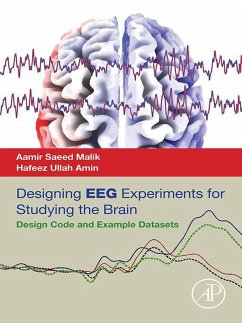Designing EEG Experiments for Studying the Brain: Design Code and Example Datasets details the design of various brain experiments using electroencephalogram (EEG). Providing guidelines for designing an EEG experiment, it is primarily for researchers who want to venture into this field by designing their own experiments as well as those who are excited about neuroscience and want to explore various applications related to the brain. The first chapter describes how to design an EEG experiment and details the various parameters that should be considered for success, while remaining chapters provide experiment design for a number of neurological applications, both clinical and behavioral. As each chapter is accompanied with experiment design codes and example datasets, those interested can quickly design their own experiments or use the current design for their own purposes. Helpful appendices provide various forms for one's experiment including recruitment forms, feedback forms, ethics forms, and recommendations for related hardware equipment and software for data acquisition, processing, and analysis.
- Written to assist neuroscientists in experiment designs using EEG
- Presents a step-by-step approach to designing both clinical and behavioral EEG experiments
- Includes experiment design codes and example datasets
- Provides inclusion and exclusion criteria to help correctly identify experiment subjects and the minimum number of samples
- Includes appendices that provide recruitment forms, ethics forms, and various subjective tests associated with each of the chapters
Dieser Download kann aus rechtlichen Gründen nur mit Rechnungsadresse in A, B, BG, CY, CZ, D, DK, EW, E, FIN, F, GR, HR, H, IRL, I, LT, L, LR, M, NL, PL, P, R, S, SLO, SK ausgeliefert werden.


